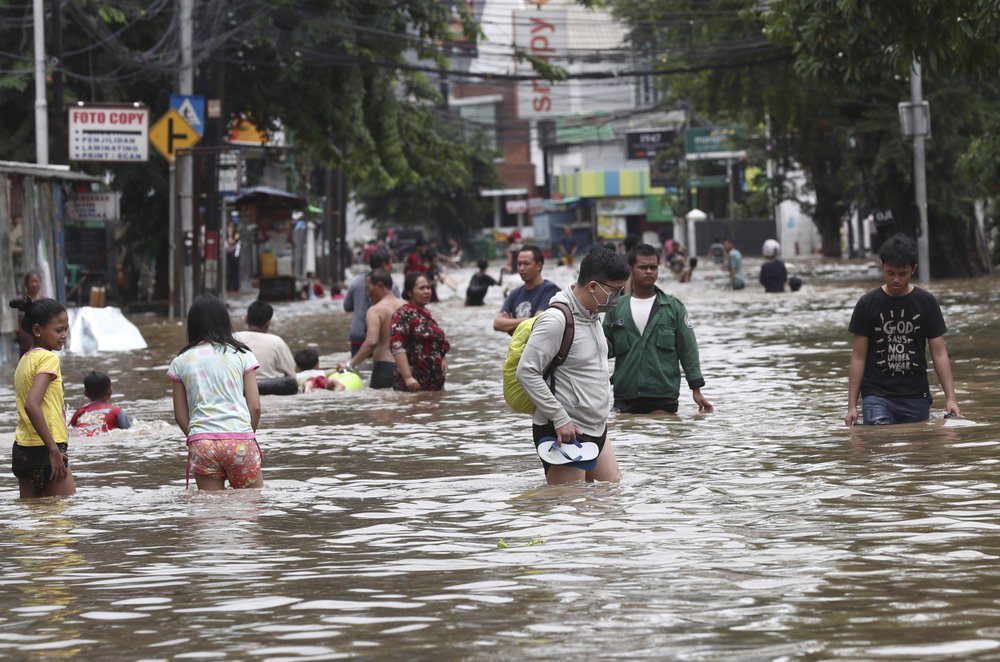Indonesia’s Problem With Capital Relocation a Warning to the Rest of the World
Indonesian President Joko Widodo delivers his annual State of the Nation Address ahead of the country's Independence Day. Photo: Bagus Indahono/AP News
The Indonesian capital of Jakarta is sinking and it is sinking fast.
Parts of the megacity could be entirely submerged by 2050, with 95% of North Jakarta estimated to sink. In addition to this, Jakarta has been continuously plagued by traffic congestion, air pollution and land subsidence – all of which contribute to increasingly damaging floods in the region.
In response, President Widodo announced a project to move the nation's capital from Jakarta, on the northwest coast of Java, to a greenfield site in East Kalimantan some 2,000 kilometres away.
The idea of relocation has been floated around for decades, but the proposal gained momentum in 2017, when Widodo endorsed the idea by saying Jakarta was too crowded and is plagued by long-running problems, such as routine flooding.
Indonesians wade through flood water on a street in Jakarta. Photo: AP Photo/Tatan Syuflana
However, a deep dive into Widodo’s determination on Jakarta’s relocation reveals political motives.
The island of Java, which encompasses Jakarta, disproportionately accounts for most of Indonesia’s economic and political power. This concentration of wealth is highlighted by the fact that Java accounts for nearly 60% of the nation's population and gross domestic product, despite occupying only 6% of the total area of the Indonesian archipelago.
These problems, however, are not a distinctly Indonesian problem.
Jakarta’s situation is particularly striking given that it is sinking at an alarming rate. But wealth inequality, air pollution, and megacities contending with sinking land are all universal problems. Global sea levels are predicted to rise by up to one metre by 2100, and coastal zones around the world will experience the brunt of this development.
If the problems Jakarta faces can be interpreted as a microcosm for that of all megacities, then its solution to diversify its people and relocate to another location has grave significance.
Widodo’s attempt at relocation is deeply consequential as it becomes an important litmus test to whether such a feat is even possible. However, the Indonesian President seems to encounter two major problems – public opinion and financial stress.
Widodo’s historic megaproject has largely been met with scepticism rather than euphoria.
A recent survey by political pollster KedaiKopi showed that 95.7% of Jakarta’s residents were against the plan. Fears of corruption and a recovering economy from the pandemic contribute to this, as the public seem to find the idea of relocation as a luxury Indonesia cannot afford.
Moreover, the project's funding is uncertain. The Indonesian government said that it will cover only 20% of the total projected cost of $31 billion, with the rest coming from private investments and public-private partnerships. After Japan's SoftBank Group pulled out of the project this March, no major investment pledges have been announced.
For Widodo, the relocation of Indonesia’s capital is a matter of survival; the cost of inaction is simply too high. He has carried this idea that has eluded his predecessors for decades, and in doing so, has tied his legacy to it - going as far as to stress the importance of it in his 2022 State of the Nation Speech.
Widodo has won the power struggle. He has passed the bill on Jakarta’s relocation. It is now law.
But Widodo’s reign is coming to an end. With him being constitutionally barred from seeking a third term in 2024, he must now leave his legacy to his undecided predecessor. History shows capital relocations tend to fail.
Perhaps this time, Indonesia can provide a roadmap on how to relocate a megacity efficiently. The world is watching, and many countries might just follow suit. The jury is still out.


